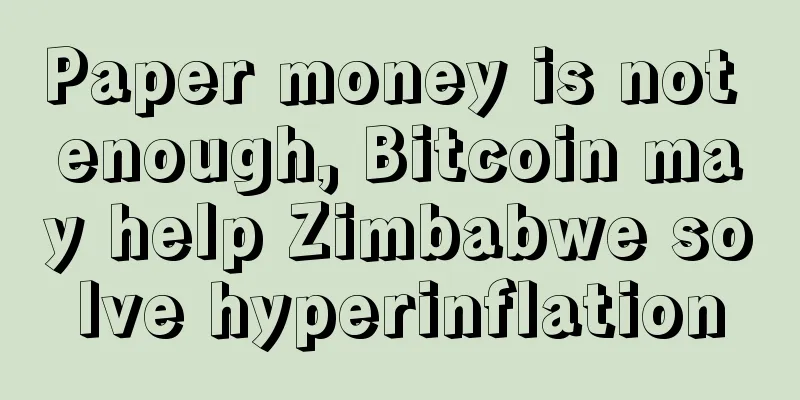Paper money is not enough, Bitcoin may help Zimbabwe solve hyperinflation

|
On November 15, 2016, the price of Bitcoin rose strongly and the market became mature and stable. According to the price quotes on China's bitcoin trading platform, today's bitcoin/RMB opened at 4846.63, and was briefly pushed down to around 4811 within an hour after opening, but soon the market went up again, and the price of the currency rose strongly. As of 16:30 on the 15th, today's bitcoin/RMB highest price was 4950 and the lowest price was 4811.91. As paper money fails to deliver the necessary support leading to hyperinflation, renowned economist Philip Haslam suggests Zimbabwe use Bitcoin. Like other countries, Zimbabwe has faced its own economic woes, with a shortage of its currency supply leading to a financial crisis. Since its early economic collapse, Zimbabwe’s economic recovery has been running on the U.S. dollar, and the scarcity of dollars has led economists to see Bitcoin as a solution to its current economic woes. Philip Haslam, a well-known economist and author of When Money Destroys Nations, expressed the same idea. An African technology news website reported Philip's idea, saying that this is the first time that someone who has a deep understanding of the workings of a country's economy and has experienced hyperinflation has recommended people to use Bitcoin. The article quotes Philip Haslam as saying: “If Zimbabwe establishes a private Bitcoin national currency, and if the market naturally adopts a Bitcoin type currency, there will be a lot of money flowing into Zimbabwe as other government currencies around the world become weak… Zimbabwe will quickly move from its current predicament to a stable cryptocurrency global banking center.” His point stems from the maximum cap on the number of Bitcoins that can be mined and the impact this has on the price of the digital currency. If the country successfully replicates its own cryptocurrency as legal tender, it could end up having the most valuable currency in the world. However, Zimbabwe could always introduce the South African rand, but this is only a short-term solution as the economy could collapse again in the future. Zimbabwe has been on the list of top 10 countries with the highest Bitcoin adoption rates, created by Garrick Hileman of the London School of Economics, since 2014. If the Zimbabwean government decides to adopt Bitcoin or a Bitcoin-type digital currency, it would certainly set a precedent for other countries that are considering similar issues, which could make Bitcoin a global currency. |
>>: Reasons for the widespread use of blockchain in 2021
Recommend
Why do moles grow hair? Is a hairy mole a good mole?
As one of the traditional physiognomy techniques, ...
Lifeline Palmistry
The lifeline is the line that starts between the ...
Pretending to be incompetent is just a sign of laziness.
In social life, the biggest failure is not having...
Group Control Setting Tutorial
Easy miner, creating value for users. We did a li...
How to read women's eyebrows
Eyebrows can be a sign of good or bad luck. We ca...
Digital currency: the savior of fragile economies
Banks will withdraw their corresponding correspon...
Is mining a fire hazard? The Russian government wants to ban mining activities in ordinary residential areas
Russia is likely to ban bitcoin mining in large r...
Palmistry and physiognomy to see your fortune in middle age
Palmistry and physiognomy to see your fortune in ...
How to tell when to get married by palmistry
When a person will enter the palace of marriage c...
Coin Zone Trends: Bitcoin Price Trends Based on Big Data This Week (2017-06-27)
The short side continues to make efforts to adjus...
What is the fate of a woman with thick lips? What does a woman with thick lips mean?
Women with thick lips are born to work hard Women...
What does it mean when a man has small eyes?
In life, people prefer big eyes, because people w...
Bitcoin Jesus published a post praising the prediction market sidechain: the most significant invention since the invention of Bitcoin
Bitcoin angel investor and entrepreneur Roger Ver...
Blockchain hype will drive up Bitcoin prices
XBT provider, which is well-known for its Bitcoin...
What does a mole on a woman's back mean?
Many people have moles on their backs. There has ...









